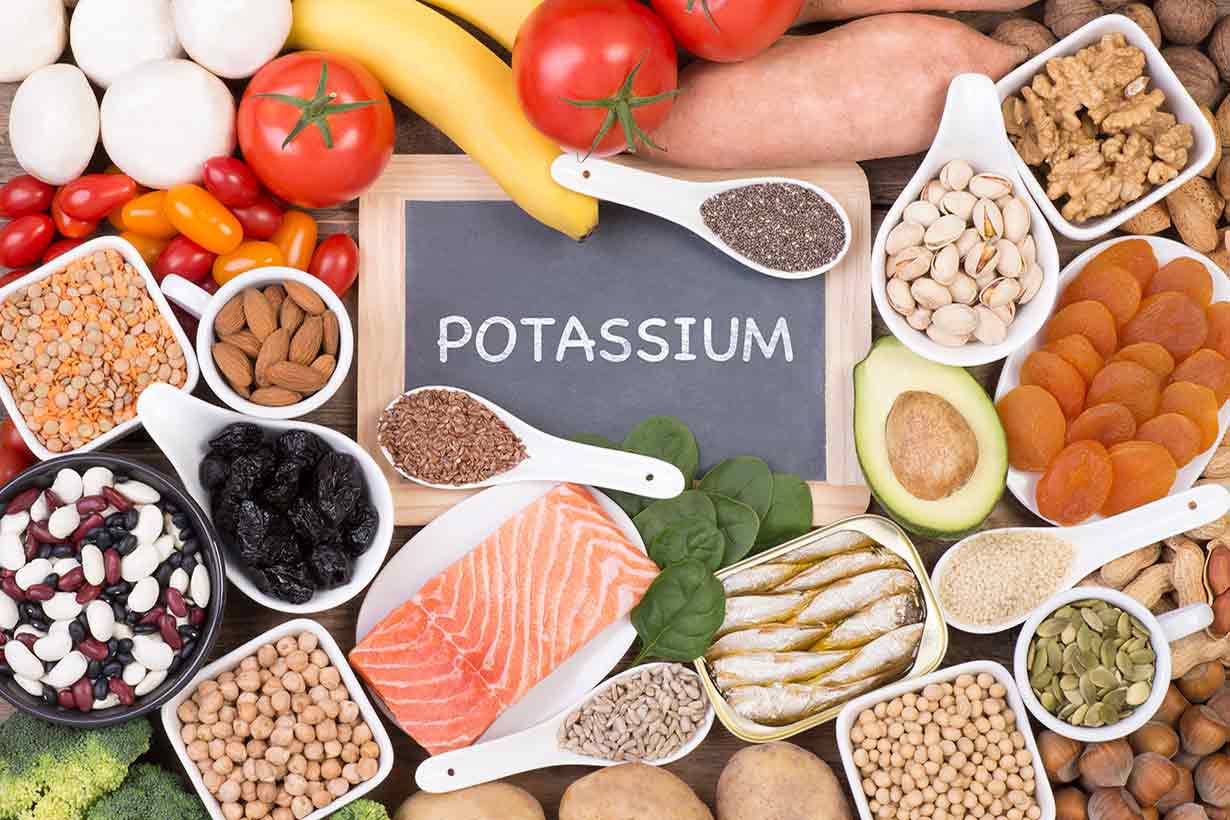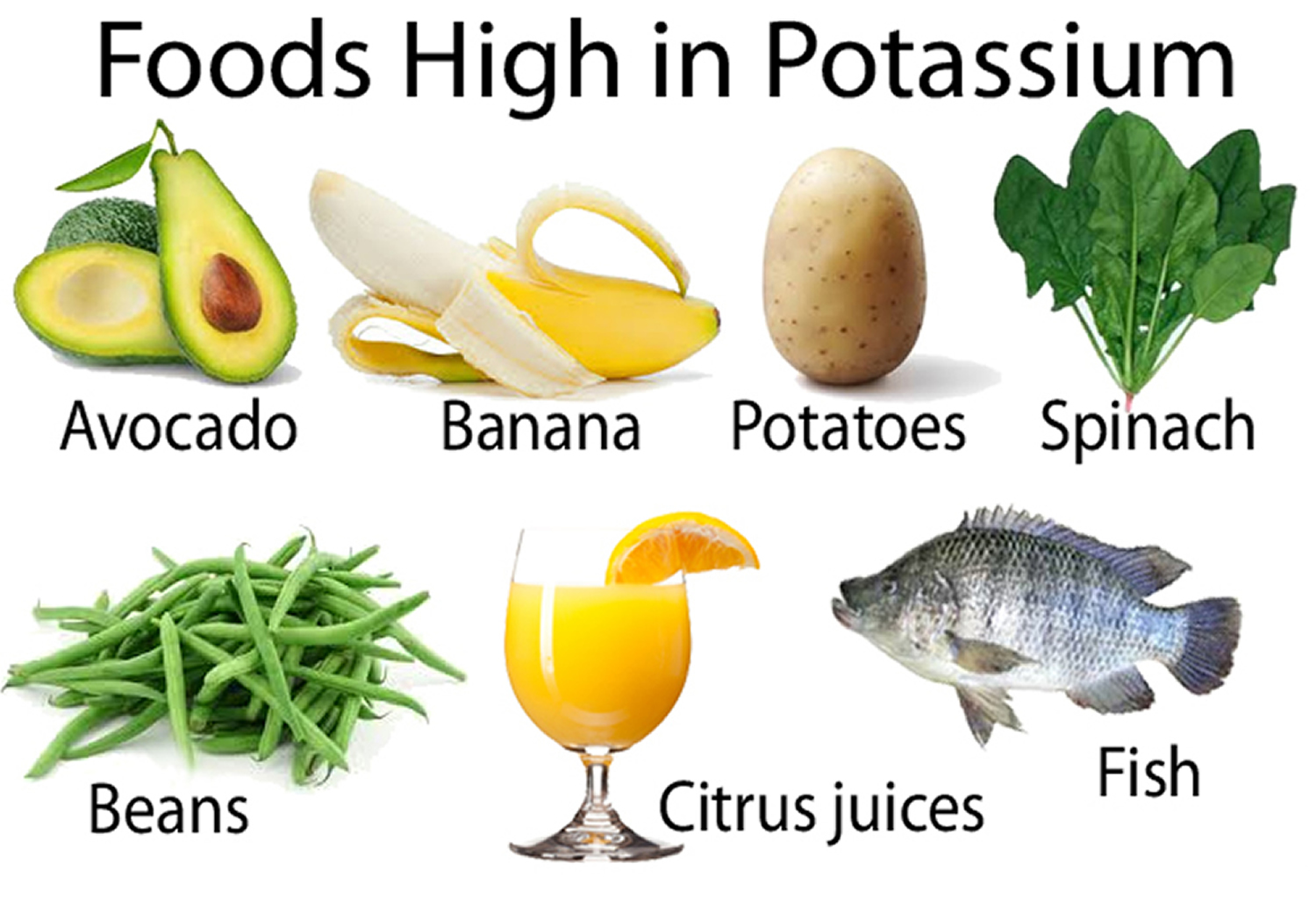Foods and Drinks High in Potassium
Foods and drinks high in potassium are essential for maintaining good health. This vital mineral plays a crucial role in regulating blood pressure, supporting muscle function, and contributing to overall well-being. A potassium-rich diet can help prevent deficiencies that lead to symptoms like muscle weakness, fatigue, and even irregular heartbeats. Let’s explore the delicious and diverse ways to boost your potassium intake.
From vibrant fruits and nutrient-packed vegetables to creamy dairy and refreshing beverages, the possibilities are endless. We’ll delve into specific examples, offering practical tips and meal planning ideas to seamlessly integrate potassium-rich foods into your daily routine. Understanding the benefits and potential risks associated with potassium consumption will empower you to make informed choices that support your health goals.
Introduction to Potassium-Rich Foods and Drinks
Potassium is an essential mineral vital for maintaining numerous bodily functions. A balanced diet rich in potassium is crucial for overall health and well-being. Adequate potassium intake contributes to several health benefits, while deficiencies can lead to various health problems.
The Importance of Potassium
Potassium plays a critical role in regulating fluid balance, nerve signals, and muscle contractions. It’s also essential for maintaining a healthy blood pressure. A sufficient potassium intake helps prevent muscle cramps, weakness, and fatigue.
Health Benefits of Adequate Potassium Intake

Adequate potassium intake is associated with a reduced risk of stroke, heart disease, and osteoporosis. It also helps maintain healthy blood pressure levels and supports optimal kidney function. Furthermore, sufficient potassium contributes to better cognitive function and may help reduce the risk of certain cancers.
Potassium Deficiency and its Symptoms
Potassium deficiency, or hypokalemia, can manifest in various ways, depending on the severity. Common symptoms include muscle weakness, fatigue, constipation, heart palpitations, and even muscle cramps or paralysis in severe cases. These symptoms often develop gradually.
Top Foods High in Potassium
Many readily available foods are excellent sources of potassium. Including a variety of these foods in your daily diet ensures you meet your daily potassium requirements.
Fruits High in Potassium
- Bananas (approximately 422 mg per medium banana): A well-known and readily accessible source.
- Dried apricots (approximately 1000 mg per 1/2 cup): A convenient and concentrated source.
- Prunes (approximately 600 mg per 1/2 cup): Another dried fruit with substantial potassium.
- Oranges (approximately 237 mg per medium orange): A good source of potassium and Vitamin C.
- Raisins (approximately 290 mg per 1/4 cup): Convenient and sweet, but consume in moderation due to sugar content.
Vegetables High in Potassium
- Sweet potatoes (approximately 542 mg per medium sweet potato): A delicious and versatile vegetable.
- Spinach (approximately 840 mg per 1 cup cooked): A leafy green packed with nutrients.
- White beans (approximately 600 mg per 1/2 cup cooked): A versatile legume, rich in potassium and fiber.
- Potatoes (approximately 926 mg per large baked potato with skin): A staple food offering significant potassium.
- Broccoli (approximately 177 mg per 1 cup cooked): A cruciferous vegetable with many health benefits.
Legumes and Nuts High in Potassium
- Kidney beans (approximately 580 mg per 1/2 cup cooked): A great source of protein and potassium.
- White beans (approximately 600 mg per 1/2 cup cooked): Versatile and easily incorporated into various dishes.
- Almonds (approximately 200 mg per 1/4 cup): A healthy snack option, providing potassium and other nutrients.
- Pistachios (approximately 290 mg per 1/4 cup): Another nut that contributes to daily potassium intake.
Dairy Products High in Potassium
- Milk (approximately 380 mg per 1 cup): A good source of calcium and potassium.
- Yogurt (approximately 380 mg per 1 cup): Offers potassium along with probiotics.
- Cheese (varies greatly depending on type): Hard cheeses tend to have higher potassium content than soft cheeses.
Fish and Meat High in Potassium
While not as rich as other categories, certain fish and meats still contribute to potassium intake. The potassium content varies significantly depending on the type and preparation method.
- Salmon (amount varies): A healthy source of protein and omega-3 fatty acids, with moderate potassium.
- Tuna (amount varies): Another good source of protein with some potassium.
- Beef (amount varies): Potassium levels depend on the cut and preparation.
Potassium-Rich Drinks
Besides food, several beverages can contribute to your daily potassium intake. Choosing natural options is generally preferred over processed ones.
Naturally High-Potassium Beverages
- Coconut water (approximately 600 mg per cup): A natural electrolyte drink.
- Orange juice (approximately 496 mg per cup): A refreshing and nutritious option (natural, not from concentrate).
Potassium in Fruit Juices

Fruit juices can be a good source of potassium, but it’s crucial to choose 100% fruit juice without added sugars. Processed juices often contain added sugars and less potassium than their natural counterparts.
Electrolyte Drinks
Electrolyte drinks, such as coconut water and some sports drinks, are formulated to replenish electrolytes lost through sweat. These drinks can provide potassium, but it’s important to check the labels for added sugars and sodium.
Potassium in Sports Drinks
Many sports drinks contain added potassium, but they often also include high levels of sugar and artificial ingredients. It’s best to consume them sparingly.
Incorporating Potassium-Rich Foods into Your Diet
Integrating potassium-rich foods into your daily meals is relatively straightforward. A balanced approach, incorporating a variety of foods, is key.
Sample Meal Plan
A sample meal plan could include a banana with yogurt for breakfast, a salad with spinach and kidney beans for lunch, and a baked sweet potato with salmon for dinner. Snacks could include almonds or a small orange.
7-Day Dietary Plan
A 7-day plan would involve incorporating a diverse range of potassium-rich fruits, vegetables, legumes, nuts, and dairy products across all meals and snacks. Variety is crucial to ensure a balanced intake of other nutrients as well.
Tips for Adding Potassium-Rich Foods
Simple strategies include adding bananas to your cereal, incorporating spinach into your omelets, or enjoying a side of sweet potatoes with your dinner. Using dried apricots in baked goods or adding nuts to your salads are other easy options.
Maximizing Potassium Absorption
Proper hydration is crucial for potassium absorption. Consuming potassium-rich foods alongside foods rich in magnesium can also improve absorption.
Potassium and Health Conditions: Foods And Drinks High In Potassium
Potassium plays a significant role in various health conditions. Maintaining adequate potassium levels is especially important for individuals with certain health concerns.
Potassium and High Blood Pressure
Adequate potassium intake is associated with lower blood pressure. Potassium helps counter the effects of sodium, which can raise blood pressure.
Potassium and Muscle Function
Potassium is essential for proper muscle function, including heart muscle. Insufficient potassium can lead to muscle weakness and cramps.
Potassium and Bone Health
Studies suggest a correlation between potassium intake and improved bone health. Potassium may help reduce bone loss and increase bone mineral density.
Potassium and Medications
Certain medications, such as ACE inhibitors and potassium-sparing diuretics, can increase potassium levels in the blood. Individuals taking these medications need to monitor their potassium intake carefully.
Disclaimer
It’s crucial to consult a healthcare professional before making significant dietary changes, particularly if you have pre-existing health conditions or are taking medications. They can help determine your individual needs and guide you on safe and effective strategies for managing your potassium intake.
Addressing Concerns about High Potassium Intake
While potassium is essential, excessively high levels can be harmful. Hyperkalemia, a condition characterized by high blood potassium levels, can have serious consequences.
Risks of High Potassium
Hyperkalemia can disrupt heart rhythm and lead to potentially life-threatening cardiac complications. Symptoms can include muscle weakness, nausea, and irregular heartbeat.
Individuals Needing to Monitor Potassium
Individuals with kidney disease, heart failure, or those taking certain medications should monitor their potassium intake closely. People with diabetes also need to be cautious.
Managing High Potassium Intake
Strategies include limiting potassium-rich foods, choosing low-potassium options, and working closely with a healthcare professional to create a safe and effective dietary plan.
Fun Facts about Potassium and its Sources
Potassium’s role extends beyond its well-known functions. There are some surprising sources and interesting facts associated with this essential mineral.
Interesting Facts about Potassium
Potassium is an electrolyte, meaning it carries an electric charge. This charge is essential for nerve impulse transmission and muscle contraction. A deficiency can lead to significant disruptions in these functions.
Unexpected Sources of Potassium
Many processed foods contain added potassium, but the quality and bioavailability of this added potassium can vary. Be mindful of the overall ingredient list and the presence of added salt, which can counter the benefits of potassium.
Anecdotes
The “banana power” associated with athletes is partly due to potassium’s role in muscle function and energy production. The quick energy boost after eating a banana is a testament to potassium’s effect on cellular energy.
Recipe Ideas Featuring Potassium-Rich Ingredients
Incorporating potassium-rich foods into your diet doesn’t have to be boring. Here are some recipe ideas to inspire you.
Potassium-Rich Smoothie
A simple smoothie can be made with banana, spinach, and almond milk. Add other fruits like berries for extra flavor and nutrients.
Potassium-Rich Salad, Foods and drinks high in potassium
A hearty salad can include spinach, kidney beans, chopped oranges, and a light vinaigrette dressing. Add some almonds for extra crunch and potassium.
Potassium-Rich Main Course
A baked salmon with roasted sweet potatoes and broccoli offers a delicious and nutritious main course rich in potassium.
Incorporating foods and drinks high in potassium into your diet is a simple yet powerful step towards better health. By understanding the diverse sources of this essential mineral and its impact on various bodily functions, you can make conscious choices to optimize your well-being. Remember to consult with a healthcare professional before making significant dietary changes, especially if you have pre-existing health conditions.
Enjoy the journey towards a healthier, potassium-rich lifestyle!
Share this content:
